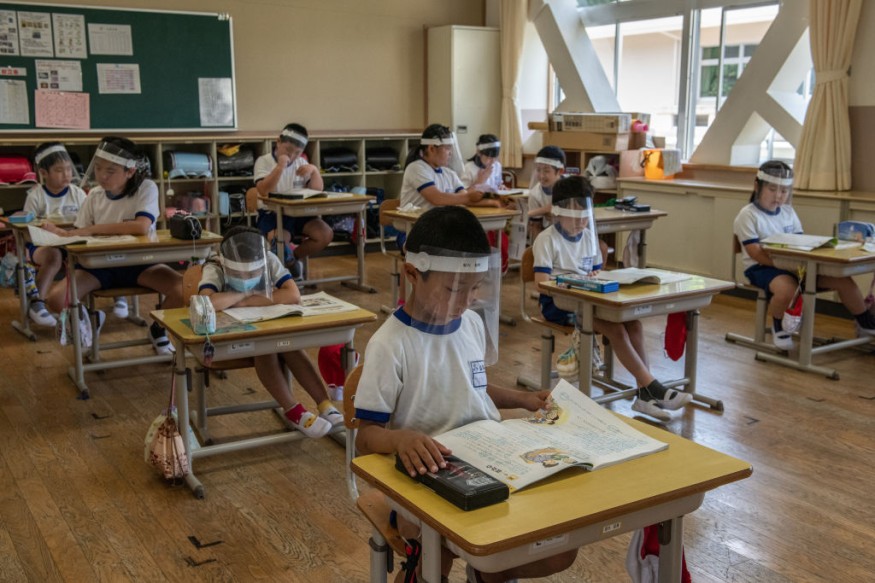It might be enticing for people to assume that since the Food and Drug Administration approved an emergency usage permit for the first COVID-19 vaccine, they will regain a "normal" existence after administering the two-dose course COVID-19 vaccine.

But infectious disease specialists caution that you may still need to wear a mask and exercise social distancing even after having either the Pfizer or Moderna vaccine or perhaps either of the other vaccines.
This is because doctors claim the clinical studies that evaluated these vaccinations for protection and efficacy concentrated on whether they might protect you from being severely sick or dying from COVID-19.
Even vaccinated persons have to assume that they will always get sick and carry around the infection in the meantime. That implies that they need to keep wearing masks and social distance if they are around unvaccinated persons.
Yet the issue will emerge when more and more people get vaccinated: what happens when you're among the people who've always been vaccinated? Which gets us to stage 1.
You and your loved ones are vaccinated
Though you will appreciate your stay with your loved ones, there would be certain caveats, experts claim. Angela Rasmussen, a Georgetown University-affiliated virologist, said vaccinations should not function immediately.
"You need to wait at minimum two weeks after the first shot to see any protection, but really you need to wait at least a week after the second shot," Rasmussen told Vox.
And there is the fact that not everybody will function as well with the vaccine. Some individuals might have health conditions that prevent their bodies from staging an immune response just as successful. The reality is, scientists are also not entirely positive that a protective reaction is produced by anyone who receives the vaccine.
Your city or state has attained herd immunity
Dr. Anthony Fauci, director of the National Institute of Allergy and Infectious Diseases, said per Wall Street Journal that Americans could proceed with masking and social distancing in public spaces before 75 to 85 percent of the populace is vaccinated. In a CNBC report, he estimates that the US would attain herd immunity at that time, which could arrive in mid-fall.
Instead of reaching national immunity all at once, at various stages, we are likely to see regions inside the US crossing the immunity threshold. It would presumably start scaling back standards progressively when each city or state declares that it's passed the threshold. We will see restaurants open for indoor dining but wear masks with servers continuing.
When a territory achieves tolerance, individuals there would be free to return freely to locations such as colleges, movie theaters, and restaurant dining indoors, while state and municipal officials have, of course, made these decisions since the pandemic, evaluating the indispensability and dangers of multiple venues. The theory is that if, around 80% of individuals are vaccinated, as Fauci estimated in a CNBC report, an immune umbrella will cover either the weak that have not been vaccinated or others who have not been vaccinated.
Unfortunately, though, Stage 2 is not the time to fly abroad to places that have not yet gained herd immunity or have no healthcare resources.
"You can have a lot of great vaccines, but they don't completely eradicate these viruses unless [discussed] very, very widely," Rasmussen said. She added that as a population-level intervention, people are also not thinking of vaccination. As a human intervention, they are worried about them. It is quite illustrative of this pandemic.
Suppose a wide area in your world reaches the immunity level. In that case, domestic travel, such as visiting vaccinated family members a few states over, could be good. But it's better to hold off on major foreign trips for your sake and the benefit of citizens overseas.
Herd immunity is globally attained
Groups like the Covax Facility, a special support tool, are so critical that 190 nations, 92 of which are lower-income countries, have been willing to combine their money to stop the pandemic rapidly. It intends to provide 2 billion vaccine doses to participating countries by the end of this year, independent of their willingness to pay.
In part, how long it takes for different nations to gain herd immunity would rely on how easily they can obtain vaccinations and what percentage of their people are prepared to get the shot. But there's another key aspect, as described above.
Eleanor Murray, an epidemiologist at the University of Boston, also told Vox that the US, Canada, and Europe had very strong links to the vaccine. Although if you're trying to travel to a third-world region, many other nations aren't usually willing to afford the vaccination, and for those people, it's going to take a lot longer.
Suppose it works out that vaccinations almost eliminate illness and dissemination, as well as symptomatic disease avoidance. In that case, we may see certain countries open their doors to visitors who have evidence of vaccination in an attempt to bring the tourism industry and the larger economy back on track. Hence, we will have to wait for travel to certain countries to restart.
Right now, note that the only approach to guarantee we can all return to life quicker is to follow up with the steps we know to curb the transmission of the infection, such as masking and social distancing. Yeah, we're sick of both of them. For the next few months, though, the longer we hold to them, the faster we will leave them for good.
Check out more news and information on COVID-19 on Science Times.
© 2026 ScienceTimes.com All rights reserved. Do not reproduce without permission. The window to the world of Science Times.











